Rotterdam, October 2025
This year’s Synergy Days, hosted by SmartAgriHubs and supported by the AgData Partnership, once again brought together Europe’s leading digital agri-food innovators. Over two inspiring days, Data4Food2030 joined more than 30 EU-funded projects, policymakers, researchers, and industry leaders to exchange insights and shape the future of sustainable and data-driven food systems.
This year marked Data4Food2030’s fourth participation in Synergy Days , a tradition that began at the project’s Kick-off Meeting in Lisbon in 2022, held right after the first Synergy Days conference and coinciding with the Final Event of SmartAgriHubs. Since that moment, each edition has offered the project a new opportunity to reconnect with the European digital agriculture community, share progress, and showcase how Data4Food2030 continues to mature.
Every participation represents both continuity and evolution, with new collaborations, insights, and results that contribute to one of the key pillars of this conference: fostering synergies across projects and building a coherent European Data Economy for Food Systems. Over the years, Data4Food2030 has become a central reference point at Synergy Days, helping shape discussions and accelerate Europe’s journey toward a more connected, sustainable agri-food data ecosystem.
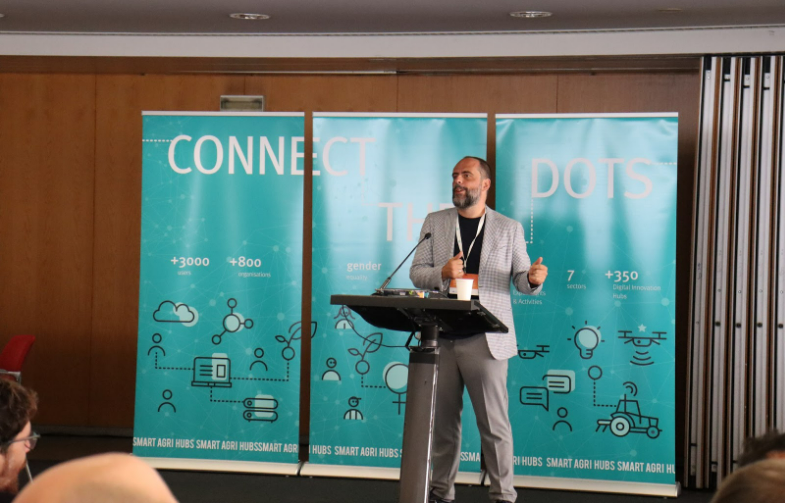
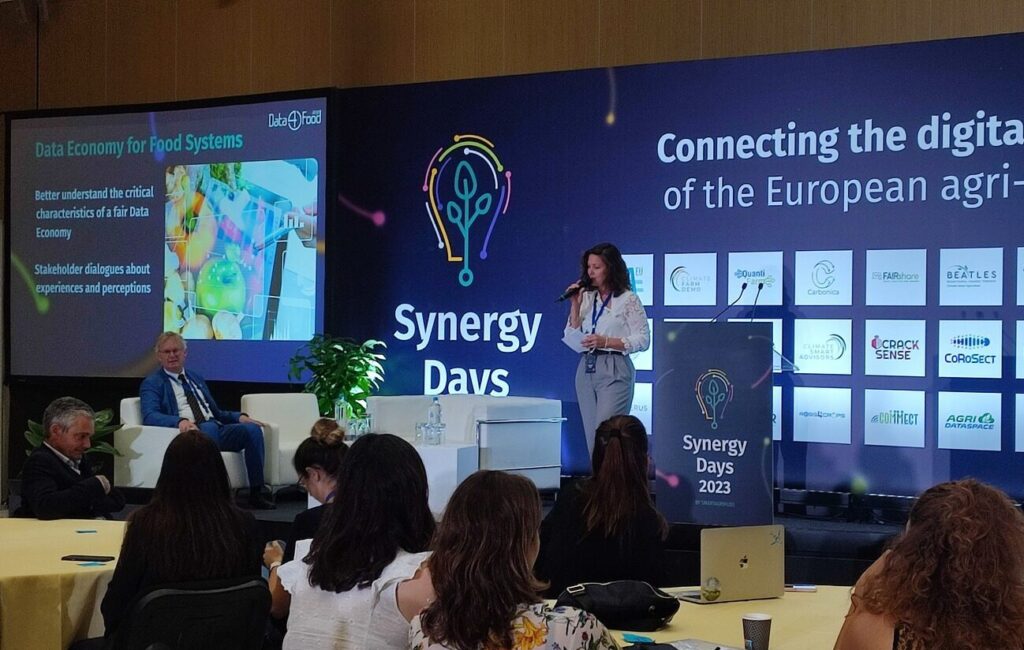
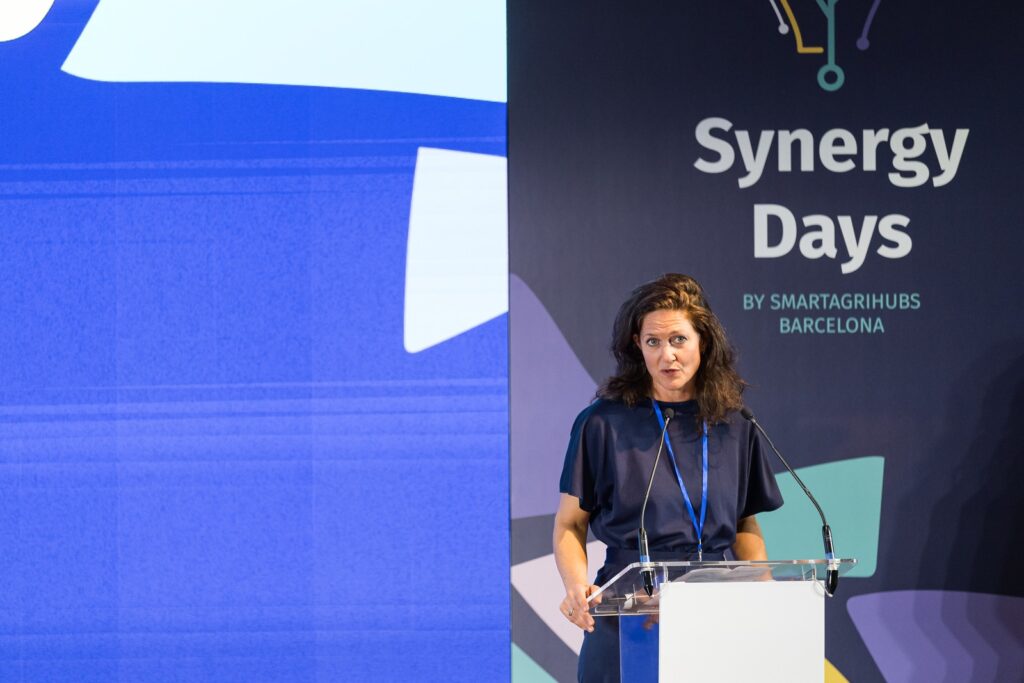
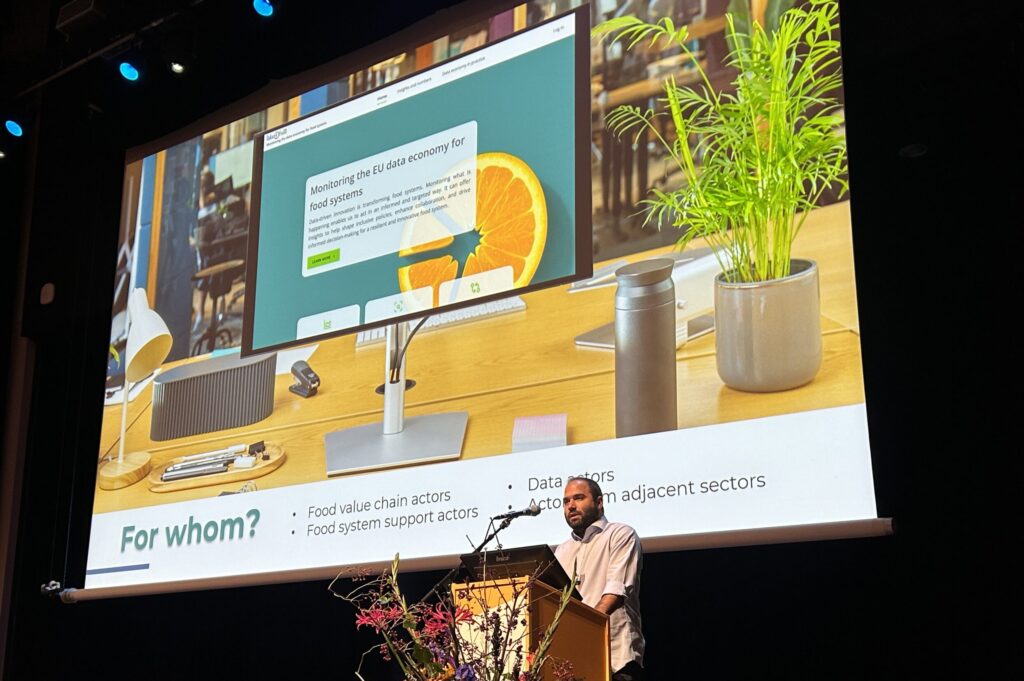
The conference opened with the plenary session “Digital Innovation Ecosystem Development in Agri-Food”, moderated by Adrien Guichaoua (Reframe.Food) and Hazel Peavoy (Walton Institute). The panel featured speakers from the European Commission, ZLTO, Flanders’ FOOD, and other organisations, who underlined the need for greater coordination between EU projects, innovation hubs, and stakeholders. The discussion focused on reducing fragmentation and improving collaboration to scale innovation across the food sector, a vision that resonates deeply with Data4Food2030’s core objectives.
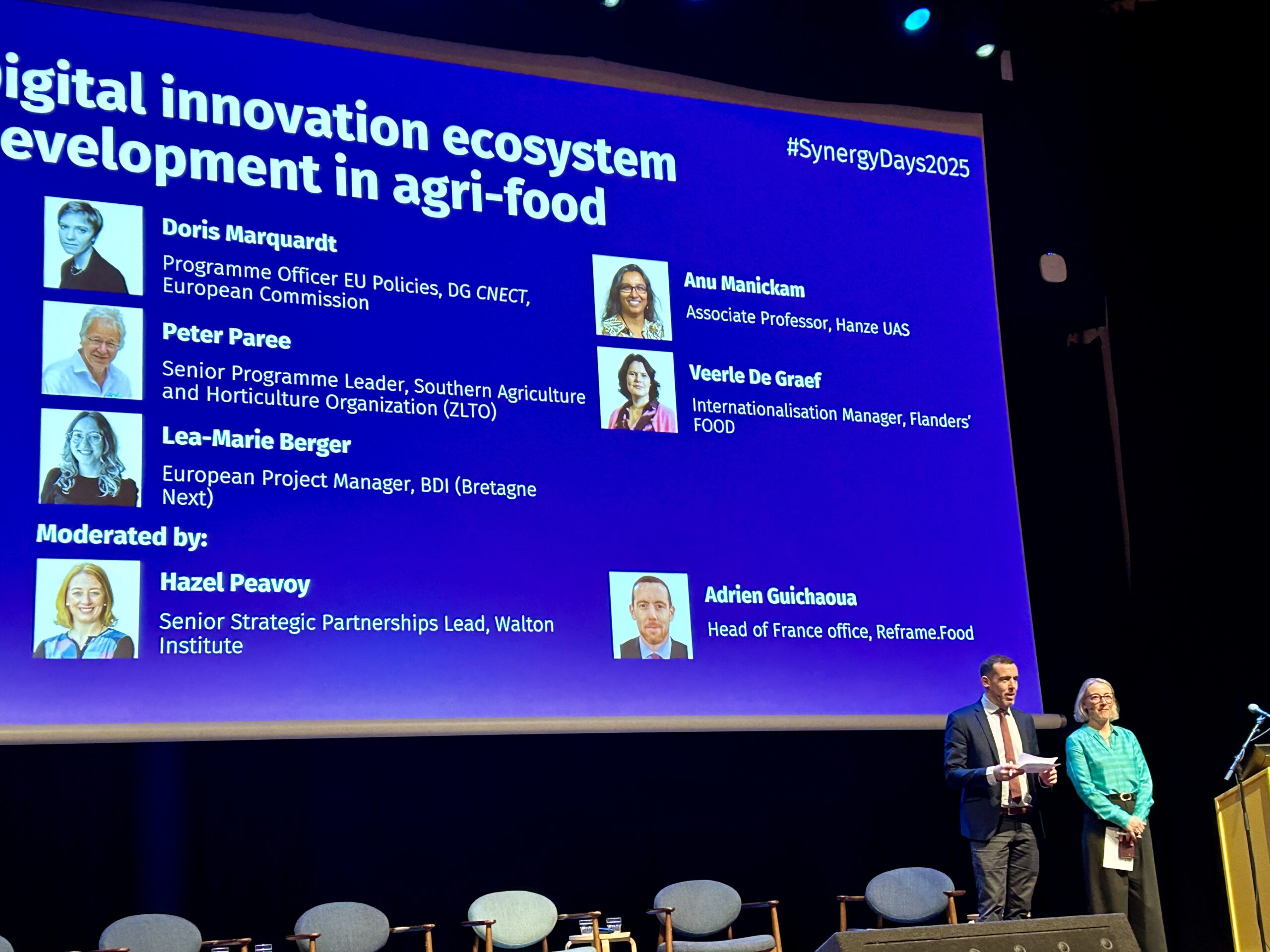
In the first Project Pitch Session, Christos Avdellas from reframe.food took the stage with an energetic and inspiring presentation of Data4Food2030’s mission to build a fair, transparent, and trusted Data Economy for resilient Food Systems in Europe. His pitch struck the perfect balance between vision and substance, highlighting how the project advances data governance frameworks, ethical data use, and multi-stakeholder collaboration.
The enthusiasm in the room was tangible and it quickly carried over to the Data4Food2030 stand, which became a lively meeting point for participants eager to explore new synergies, exchange ideas, and discuss future cooperation. The strong engagement from diverse stakeholders reflected the project’s growing impact and the shared commitment to shaping a trusted and inclusive agri-food data ecosystem.
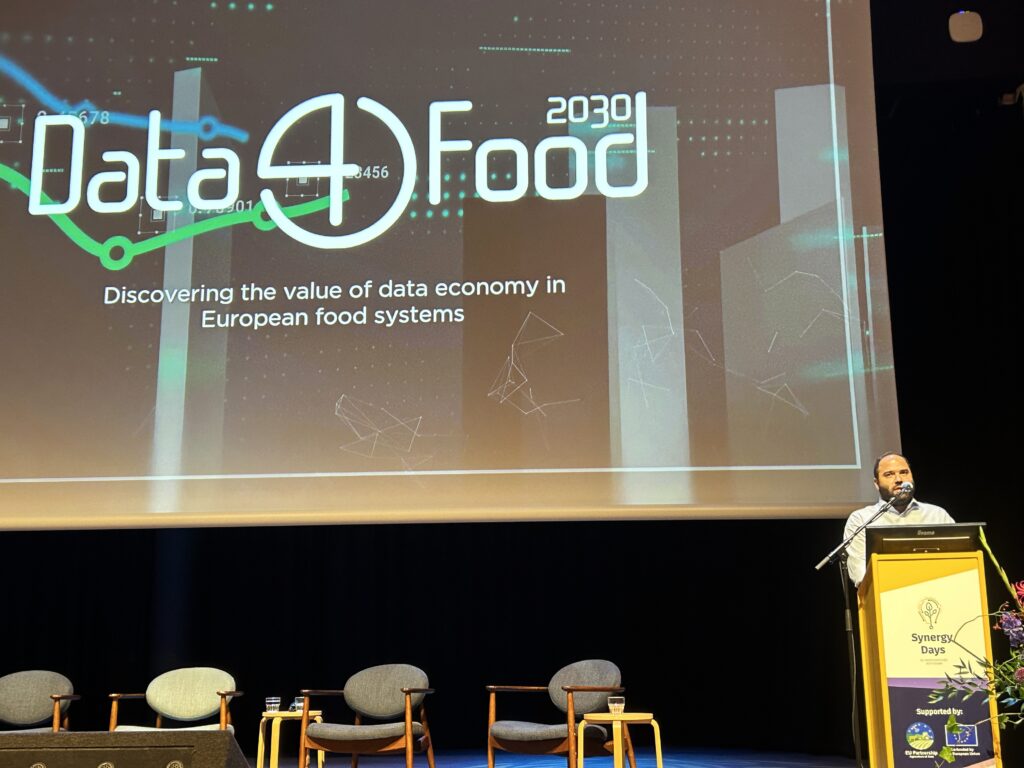
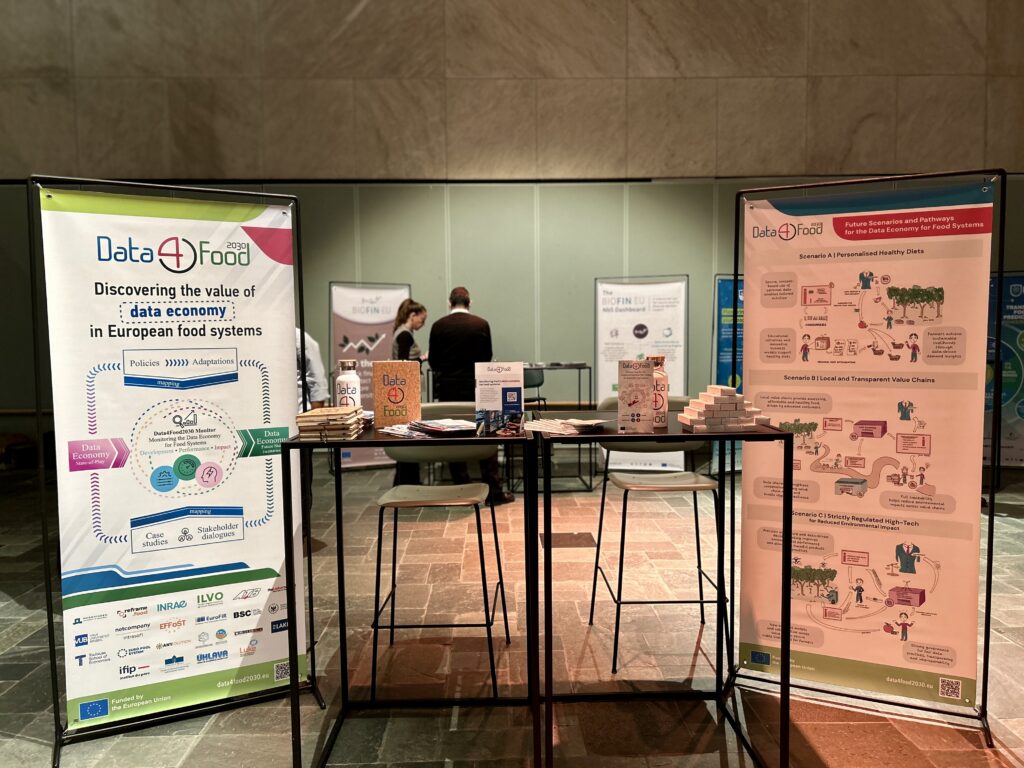
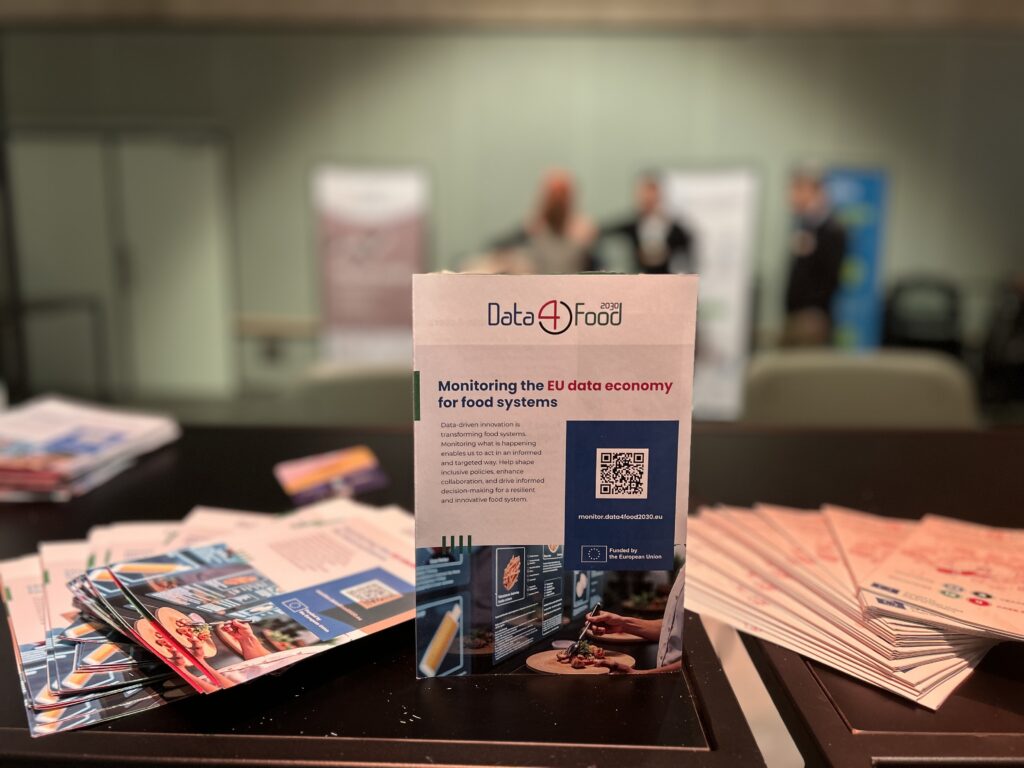
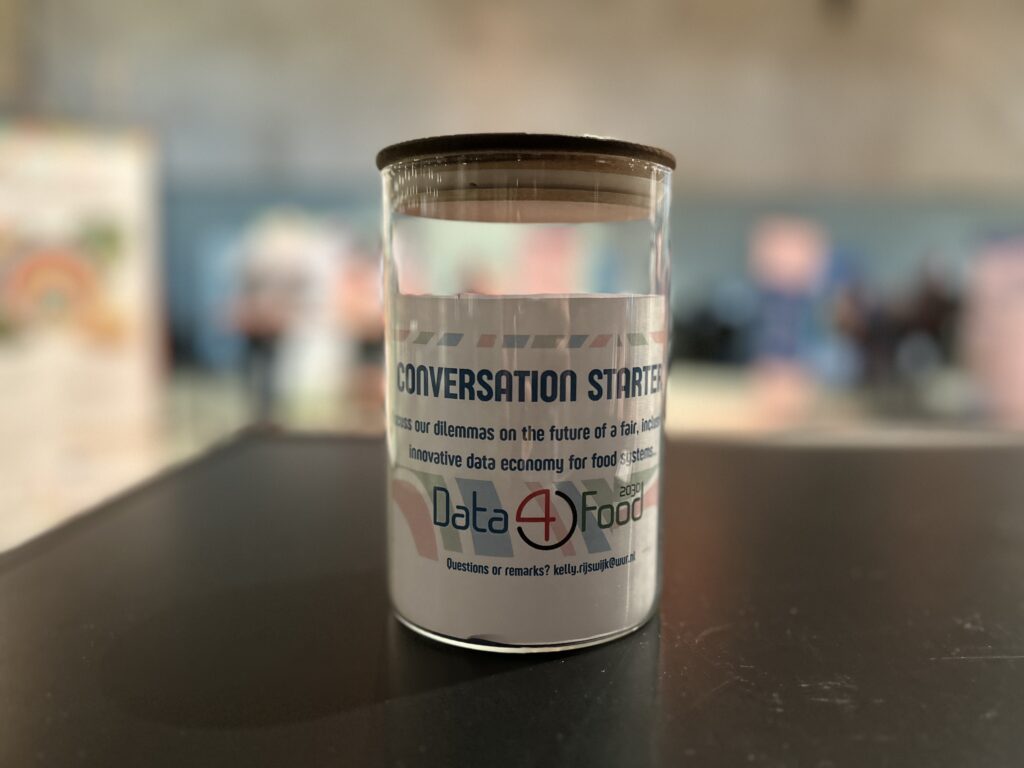
Beyond the pitch, Data4Food2030 co-organised two fully booked and highly interactive workshops, both of which became focal points of the event:
Both sessions attracted impressive participation and sparked dynamic dialogue among researchers, policymakers, innovators, and data experts. Attendees actively engaged in discussions on inclusivity, transparency, and interoperability, highlighting both the challenges and the transformative potential of implementing data spaces in agriculture. The strong collaboration between projects and the high level of audience participation demonstrated how these initiatives can jointly advance Europe’s digital transition and contribute to a responsible and human-centred Data Economy.
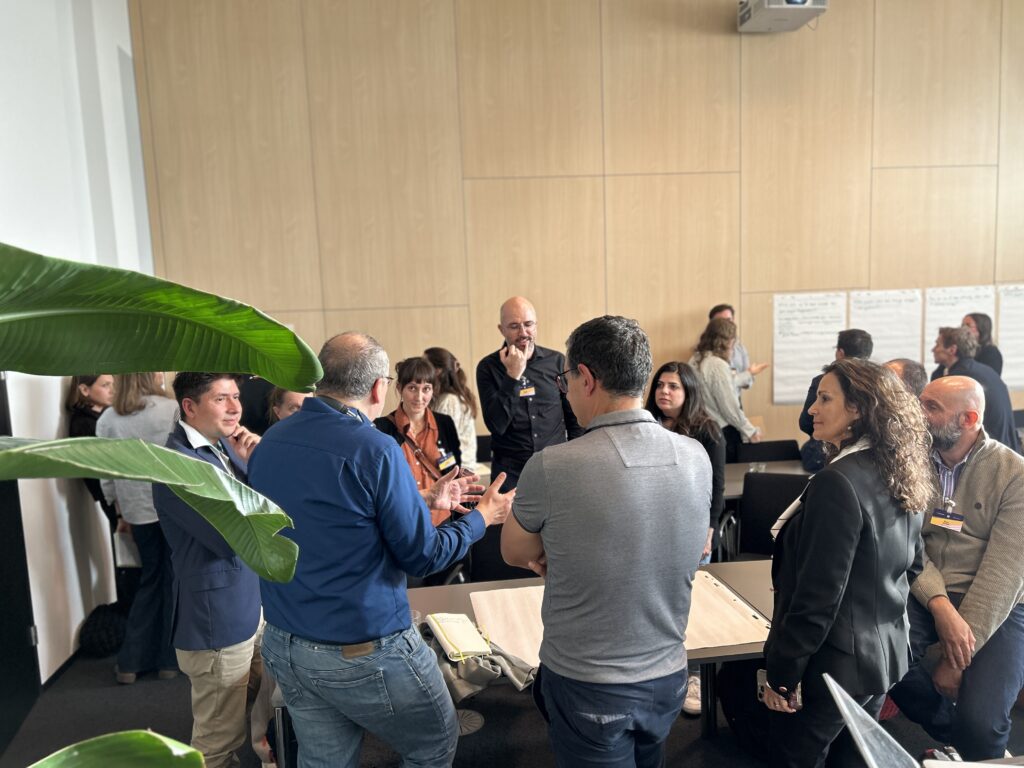
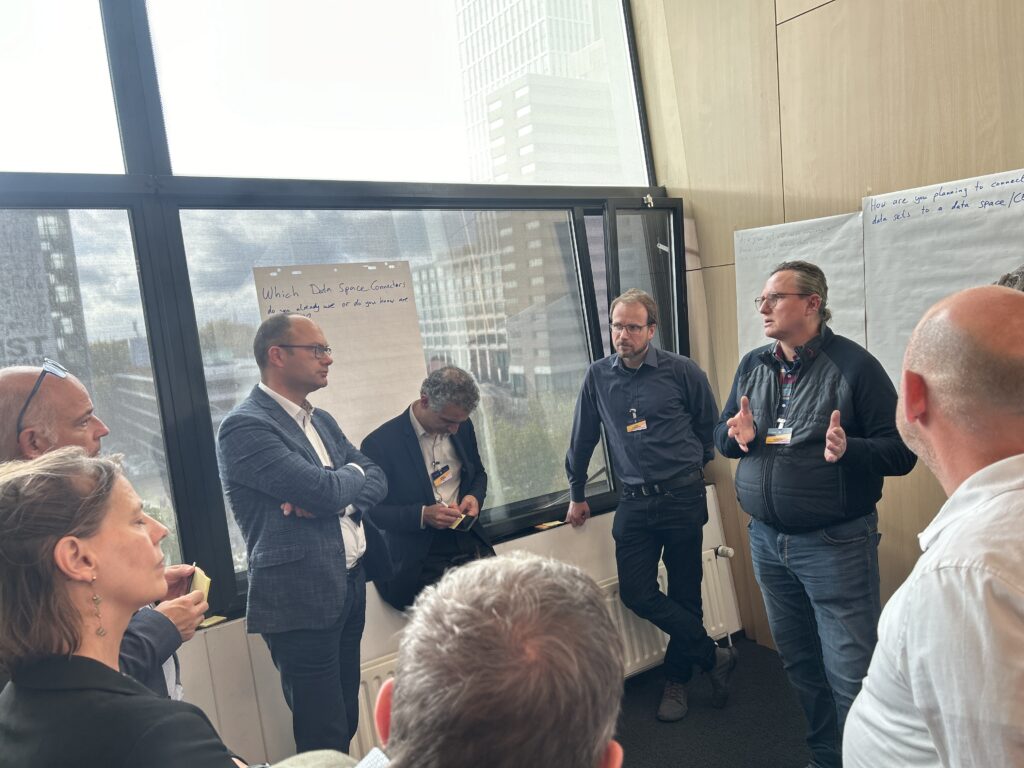
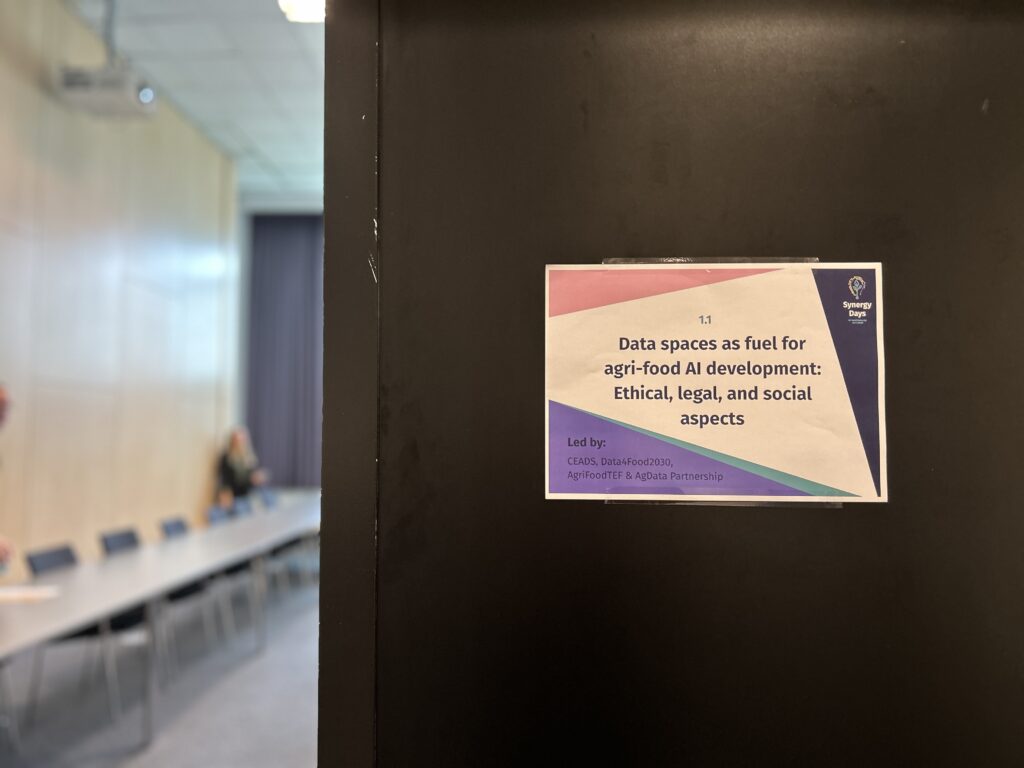
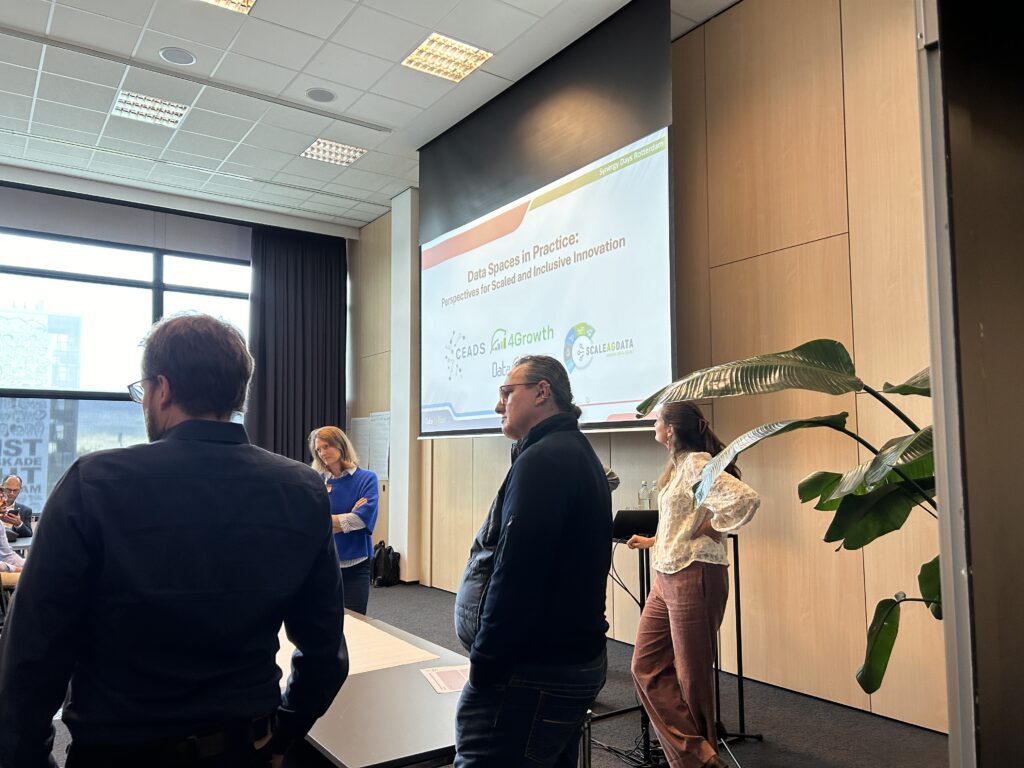
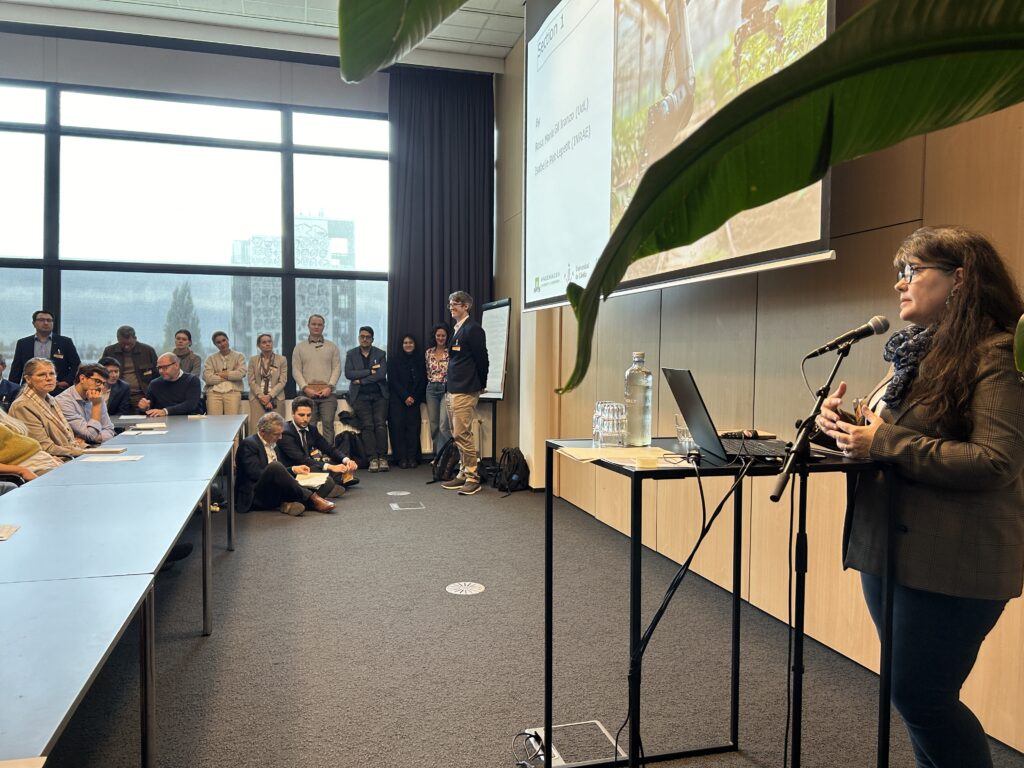
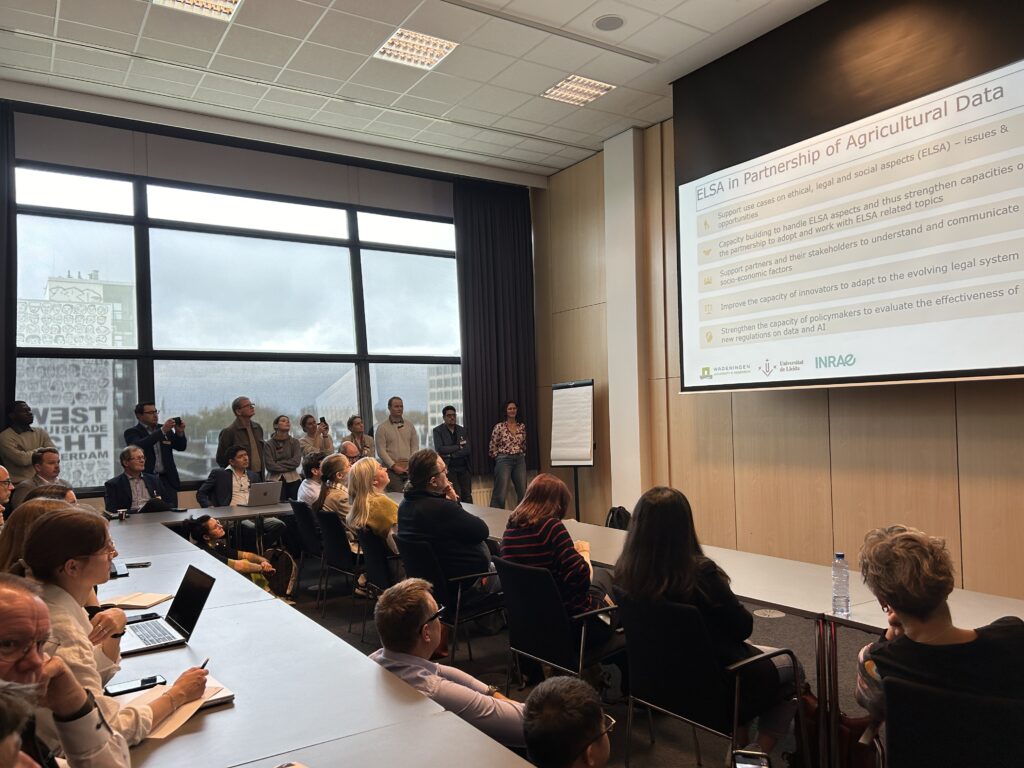
Beyond formal sessions, the Synergy Market offered fertile ground for networking and cross-project dialogue. The Data4Food2030 stand drew steady interest from participants keen to learn about the project’s activities on data governance, innovation pathways, and impact assessment. Conversations often evolved into discussions about future cooperation and joint initiatives, further reinforcing the spirit of collaboration that defines Synergy Days.
Other sessions, including “Professionalisation in European Agriculture” and “Pooling Resources for European Competitiveness”, resonated strongly with Data4Food2030’s mission. They explored how digitalisation, skills development, and trust in data can drive Europe’s transformation toward a sustainable and competitive agri-food sector.
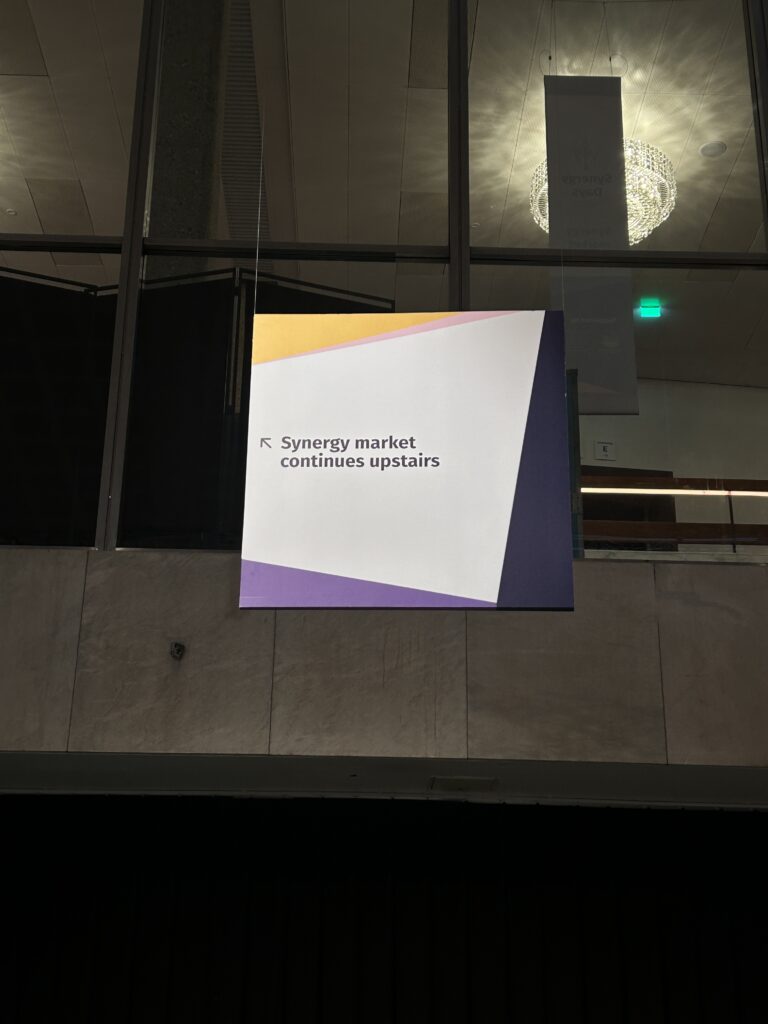
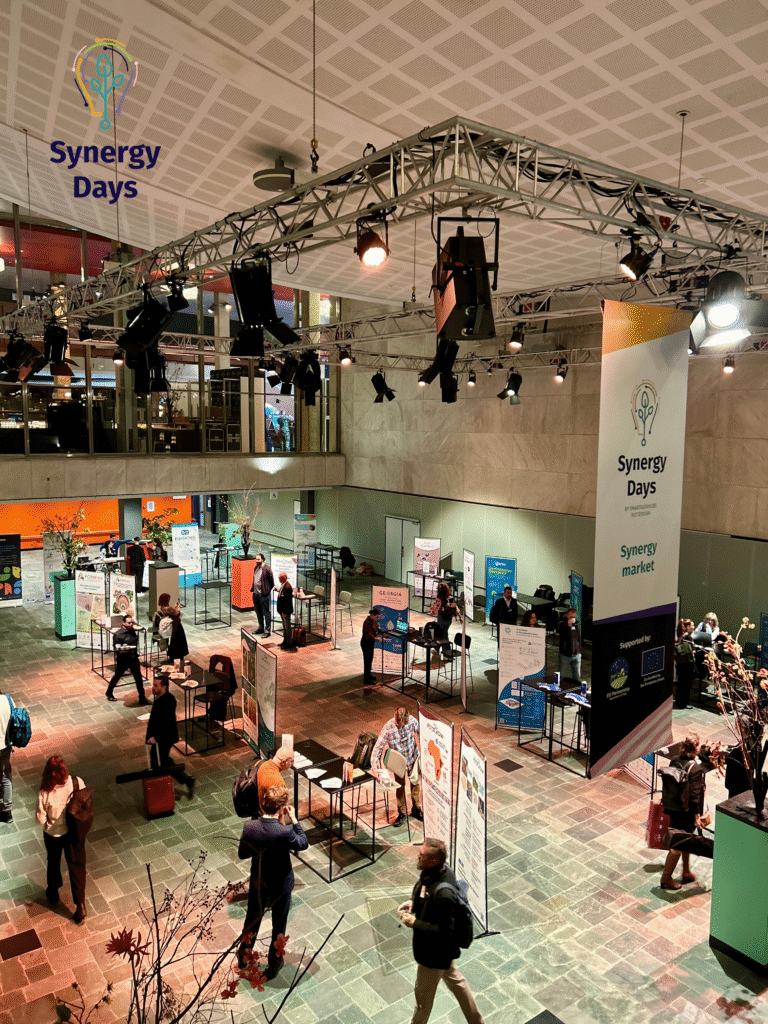
The second day of the conference deepened these themes with the session “Data Spaces, Data Economy and Digital Twins, AI”, which explored how data-driven technologies can enhance collaboration, innovation and sustainability across the agri-food sector. The session was moderated by Harald Sundmaeker (ATB) and featured among its speakers Jürgen Vangeyte (EV ILVO) and Dolores Ordóñez (ANYSOL), all core partners of Data4Food2030, demonstrating the project’s strong presence and expertise in advancing Europe’s agri-food data ecosystem. The day concluded with the plenary “Cultivating Change: The Use of Digital Tech by Female and Young Entrepreneurs in Agri-Food”, which championed inclusion, diversity and generational renewal, values integral to Data4Food2030’s vision.
As Synergy Days 2025 concluded, one message stood clear: collaboration remains the foundation of Europe’s digital agri-food future. Through continued engagement, shared learning and collective action, Data4Food2030 is proud to contribute to shaping a fair, resilient and data-driven agri-food ecosystem for Europe. A heartfelt thank you goes to SmartAgriHubs for the excellent organisation, and to all partners and participants for their enthusiasm, collaboration, and commitment. Together, we are building a smarter, more sustainable agri-food future.
| Cookie | Duration | Description |
|---|---|---|
| cookielawinfo-checkbox-advertisement | 1 year | Set by the GDPR Cookie Consent plugin, this cookie is used to record the user consent for the cookies in the "Advertisement" category . |
| cookielawinfo-checkbox-analytics | 11 months | This cookie is set by GDPR Cookie Consent plugin. The cookie is used to store the user consent for the cookies in the category "Analytics". |
| cookielawinfo-checkbox-functional | 11 months | The cookie is set by GDPR cookie consent to record the user consent for the cookies in the category "Functional". |
| cookielawinfo-checkbox-necessary | 11 months | This cookie is set by GDPR Cookie Consent plugin. The cookies is used to store the user consent for the cookies in the category "Necessary". |
| cookielawinfo-checkbox-others | 11 months | This cookie is set by GDPR Cookie Consent plugin. The cookie is used to store the user consent for the cookies in the category "Other. |
| cookielawinfo-checkbox-performance | 11 months | This cookie is set by GDPR Cookie Consent plugin. The cookie is used to store the user consent for the cookies in the category "Performance". |
| CookieLawInfoConsent | 1 year | CookieYes sets this cookie to store the user consent. |
| elementor | never | This cookie is used by the website's WordPress theme. It allows the website owner to implement or change the website's content in real-time. |
| PHPSESSID | session | This cookie is native to PHP applications. The cookie is used to store and identify a users' unique session ID for the purpose of managing user session on the website. The cookie is a session cookies and is deleted when all the browser windows are closed. |
| viewed_cookie_policy | 11 months | The cookie is set by the GDPR Cookie Consent plugin and is used to store whether or not user has consented to the use of cookies. It does not store any personal data. |
| Cookie | Duration | Description |
|---|---|---|
| _ga | 1 year 1 month 4 days | The _ga cookie, installed by Google Analytics, calculates visitor, session and campaign data and also keeps track of site usage for the site's analytics report. The cookie stores information anonymously and assigns a randomly generated number to recognize unique visitors. |
| _ga_* | 1 year 1 month 4 days | Google Analytics sets this cookie to store and count page views. |